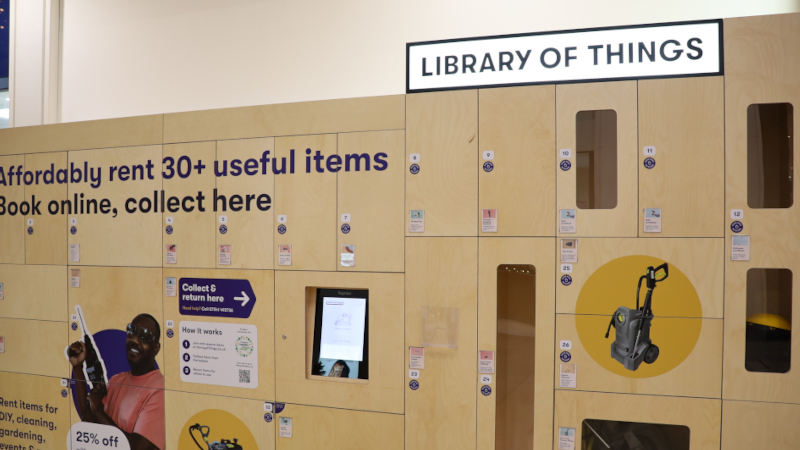Becoming carbon neutral by 2030
To help achieve our ambition of becoming a carbon neutral organisation by 2030, we have produced:
- The Wandsworth Environment and Sustainability Strategy that serves as a road map to reach our targets
- The Wandsworth Climate Action Plan that details specific actions we will take to reduce carbon emissions in the borough
Reducing our emissions
To reduce our carbon emissions we are:
- Developing a new Decarbonisation Strategy
- Embedding adaptation and resilience measures including cool spaces, green spaces, and sustainable urban drainage systems
- Delivering energy efficiency and decarbonisation improvements to priority sites
- Utilising carbon offset funding to deliver decarbonisation projects
- Applying for the Public Sector Decarbonisation Scheme funding

Decarbonising our fleet
To decarbonise our fleet of vehicles we are:
- Replacing end-of-life vehicles with electric vehicles (EVs)
- Introducing new EV charging points
- Setting decarbonisation targets between now and 2030
- Running our waste collection lorries on recycled vegetable oil
- Investing in hybrid vehicles and charging points at Sudbury House

Using more renewable and low carbon energy sources
To decarbonise our energy supply we are continuing to progress the Power Purchase Agreement, helping us secure long-term supplies of zero carbon electricity.
Progressing towards a net zero pension fund by 2050
We have identified investment opportunities for our pension fund that align with our Environment and Sustainability Strategy. This will enable us to decarbonise our investments and progress towards a net zero pension fund by 2050.
Embedding sustainable procurement practices
To evaluate the sustainability of our procurement spend the Climate Change and Sustainability team have commissioned consultants Co2 Analysis to calculate our scope three emissions.
Our Social Value Monitoring Officer is also working to engage with our suppliers and track their progress against commitments, including sustainability.
Increasing staff knowledge on climate change and sustainability
We are undertaking carbon literacy training to improve staff and council member knowledge on climate change and sustainability.
We are currently a bronze certified organisation, and aim to achieve silver level in 2025 which requires 20% of the workforce to receive the training.
We are also holding a monthly internal staff sustainability network. This serves as a space for staff to share knowledge and skills on climate change and sustainability.
Being open and transparent in our approach to climate change
To maintain our open and transparent approach to climate change we:
- Maintained a CDP A rating two years in a row
- Report our organisational carbon emissions to WWF One Planet One City and Global Covenant of Mayors
- Publish a public-facing annual report summarising our actions and progress on climate change and sustainability
Supporting staff to travel sustainably
To support staff with sustainable travel we promote:
- Staff facilities available to support sustainable travel
- Staff benefits for sustainable travel, including the cycle to work scheme, season ticket loan, and EV leasing scheme
- Safe cycle and walking routes to council locations
Identifying funding opportunities to deliver climate action for the organisation
To identify funding opportunities for climate change related projects we:
- Work with partners, such as universities, to leverage funding and resource into the organisation and borough
- Work with Anthesis to do Area Based Insetting in partnership with local authorities across the UK to generate funding
Reducing waste from Wandsworth Council sites
We are proud to be part of the One World Living Councils pledge on single-use plastic, collaborating through a pan-London working group.
Our efforts focus on understanding the barriers faced by boroughs and working together to overcome them. By learning from best practice examples from other cities and countries, we aim to develop effective methodologies and actions that support borough activities in reducing plastic waste.
Additionally, we promote the Library of Things to our staff, offering discount codes to encourage participation. This initiative supports the circular economy by promoting the reuse and repair of items, which in turn helps reduce waste.
